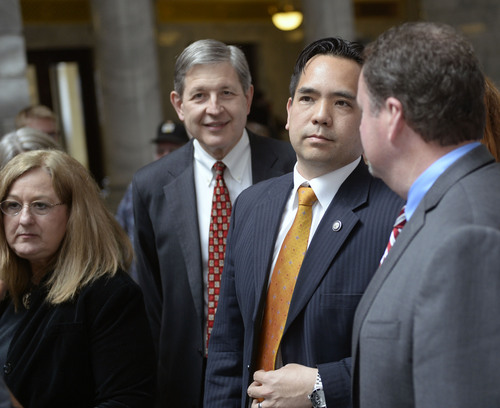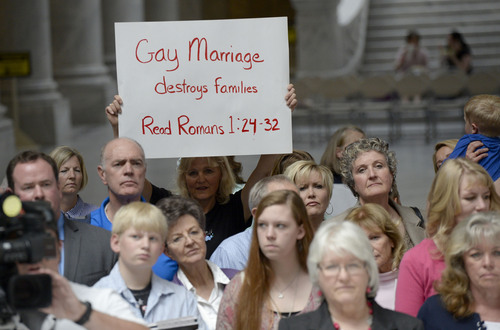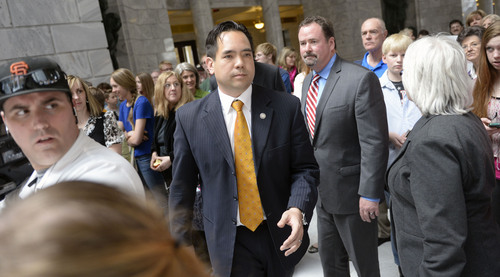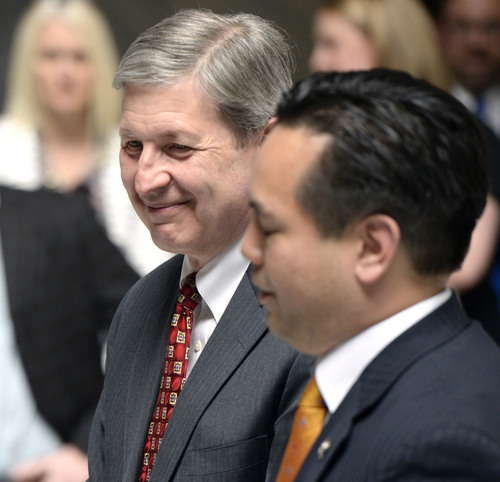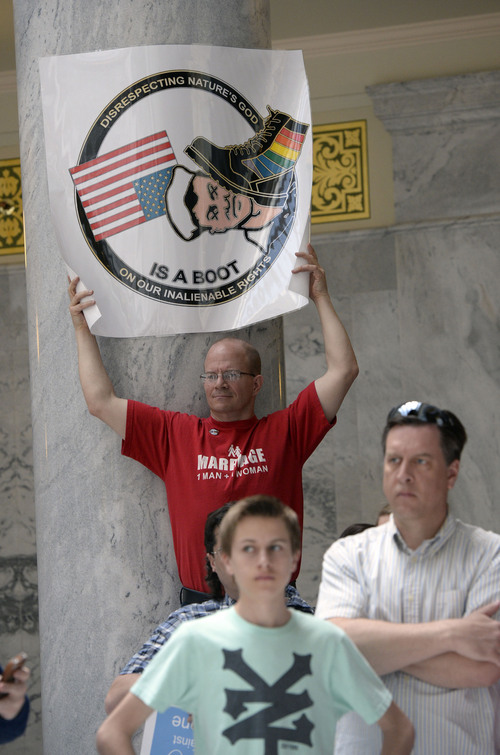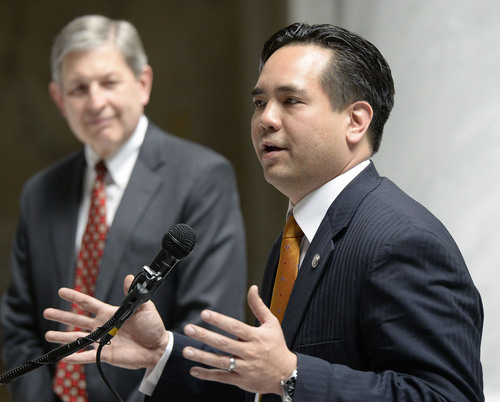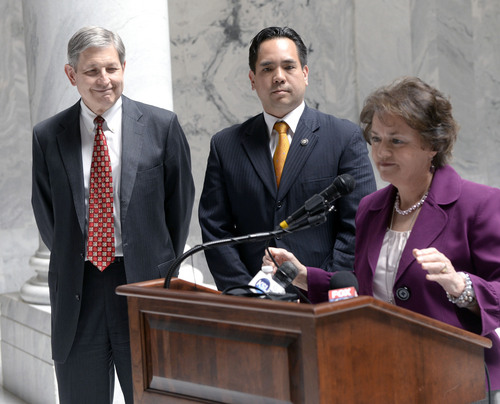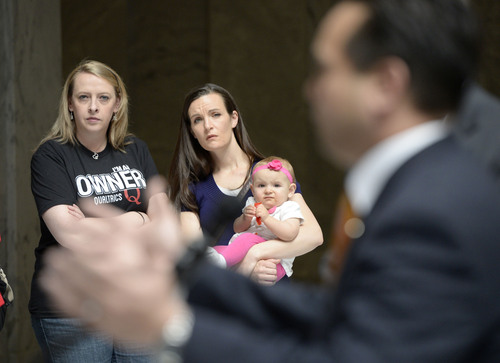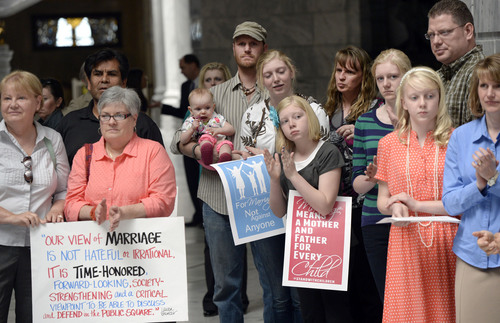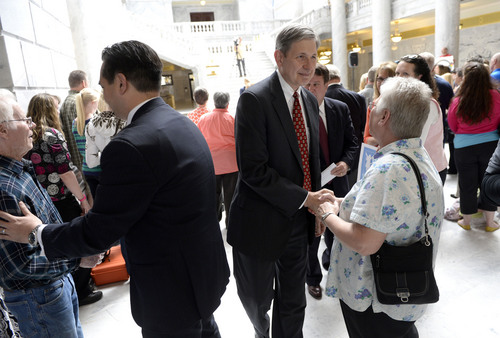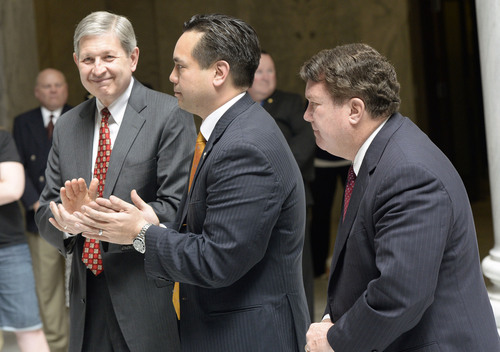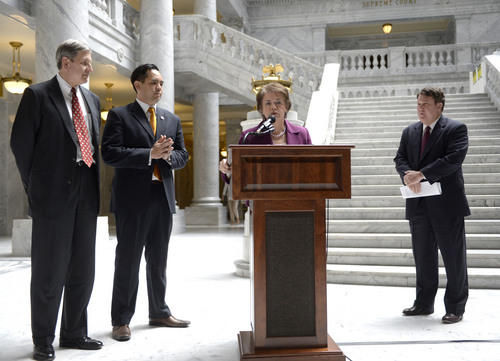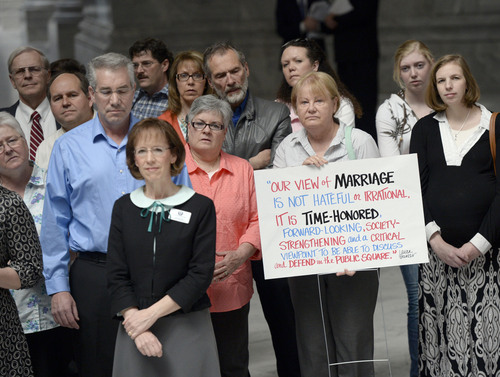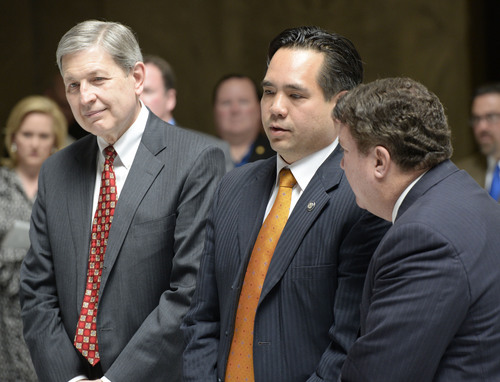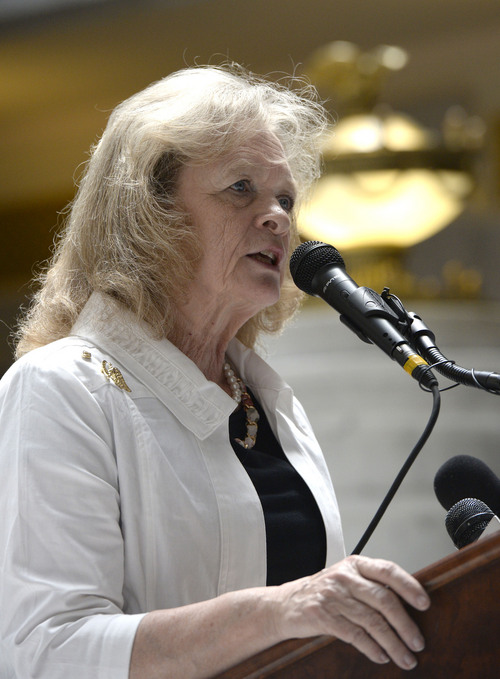This is an archived article that was published on sltrib.com in 2014, and information in the article may be outdated. It is provided only for personal research purposes and may not be reprinted.
At a rally in support of Utah's ban on gay marriage, one message stood out as a common refrain: "We aren't 'against' anyone."
"We've been accused of being motivated by hate," Attorney General Sean Reyes said Friday, one day after he and outside counsel appeared at the 10th U.S. Circuit Court of Appeals in Denver to defend the state's same-sex marriage ban against claims that it is driven not by public interest, but by animus against gay people.
"We are not [acting] out of animus or any sinister motives against individuals or families in Utah," Reyes said. "Whenever people suffer or are hurt, I feel sorry. ... But I will not apologize for standing up for the laws of the state of Utah."
While multiple speakers against gay marriage professed compassion for lesbian, gay, bisexual and transgender individuals and their families, the rally brushed against the concurrent "National Day of Silence" recognizing LGBT victims of bullying.
Speaker Cherilyn Eagar focused on that celebration, decrying it as "pro-gay" and urging judges, schools and elected officials to stop the anti-bullying event.
"Our voices are being silenced," Eagar said, arguing that such anti-bullying initiatives stifle gay-marriage opponents' speech. "Stand up today and speak out courageously."
Eagar warned that same-sex-marriage advocates "wish to redefine the institution for their own selfish purposes." She also warned that her Sandy-based group, American Leadership Fund, would seek the removal of any federal judge who finds Utah's ban on gay marriage unconstitutional — as U.S. District Court Judge Robert J. Shelby did on Dec. 20, prompting a rush of same-sex weddings at county clerks' offices across the state and leading to Thursday's appeal arguments in Denver.
"Should this panel of three judges declare [the ban illegal], they will be defying their own court's standard of 'rational basis,' and we will petition to have them, and all other judges in the federal courts who are defying or redefining their own rules, removed from the court," Eager said to cheers from a crowd of about 100 people in the Utah Capitol Rotunda.
Several speakers addressed what the state is claiming as its "rational basis" for the ban — that gay marriage harms children by facilitating families comprised without a parents of both sexes.
Mary Summerhays, representing the Utah Celebration of Marriage, held up a photograph of two gay men holding their newly adopted children and smiling alongside their birth mother.
"These children will have two very doting fathers," Summerhays said. "But no matter how loving, two fathers can never replace a mother."
The children, she said, would eventually be left to wonder why their mother is not in their lives, how much she was paid to create them, whether that compensation was appropriate, and other difficult questions. "These questions will trouble mother and children throughout their entire lives."
Summerhays argued that proponents of gay marriage have "endorsed the lifestyle that puts adults' needs before children's needs."
Eleven-year-old Heather Ells said she represents Utah's children when she wonders, "Why should recognizing relationships of choice be more important than recognizing children's biological relationships with their parents?"
Ells, who lives in Springville, elicited loud applause when she argued: "It isn't right to purposely create a fatherless or motherless child.
"Judge Shelby has created a second class of citizens: Children."
Thursday's hourlong hearing in Denver precedes a similar case before the 10th Circuit on Thursday, when Oklahomans will present cases for and against their state's same-sex marriage ban. In reviewing Utah's case, analysts observed, the three appellate judges appeared to be split on the matter.


